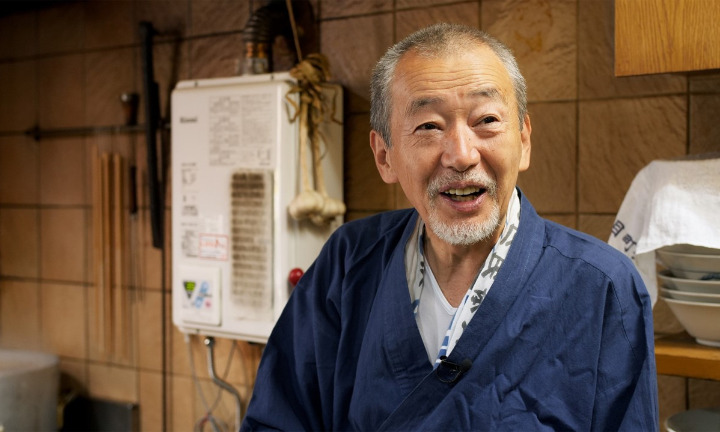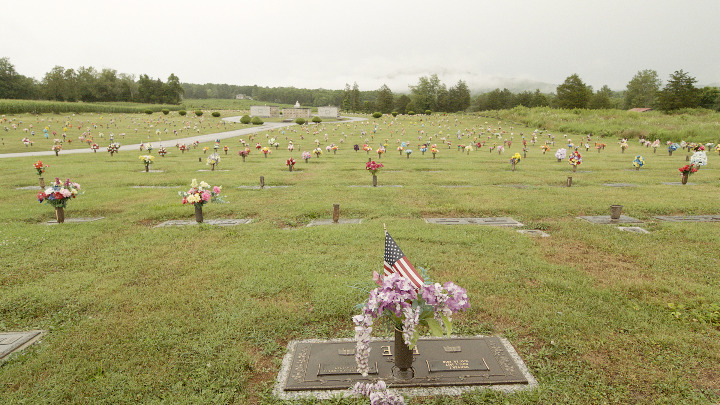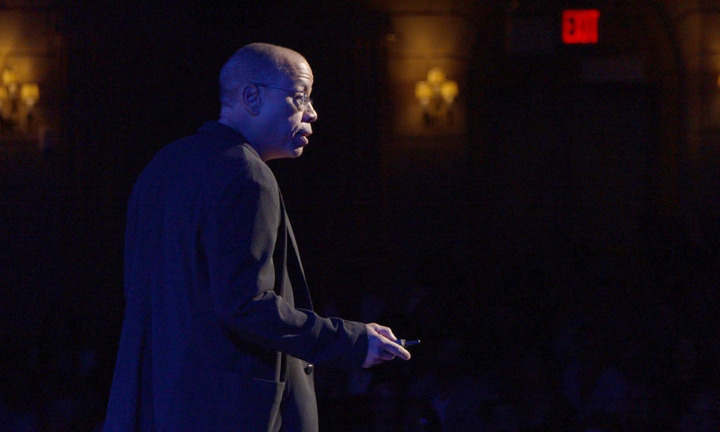As the Cheers theme goes, sometimes you want to go where everybody knows your name. The ramen shop pictured in Come Back Anytime is such a place to its beloved group of regulars. While this cozy, heartwarming doc is about the artistry of an excellent bowl of soup, it is just as much about the power of community and connection.
The new doc takes place inside a tiny ramen shop called Bizentei, tucked away on an unassuming street in Tokyo. If you’re craving ramen or ever wanted to peek inside a legendary kitchen, you are in for a treat. In fact, everyone can see inside the kitchen at Bizentei – customers are cozied up to the prep counter’s ledge.
Many of the regulars interviewed in the film have been loyal fans for decades. After the shop’s original location had to be given up on little notice, one devotee searched for it for years until he finally found it again. Even when the shop’s owners, Masamato and Kazuko Ueda, aren’t at work, you’ll find Masamato hanging out with many of the same friendly faces that slurp noodles at his shop.
The film is also a study of the art of ramen that will satisfy foodies. Although Bizentei’s menu is trim, the film introduces the different ingredients, kinds of broth bases, and cuts of meat. It even shows the less appetizing stages of ramen-making, like skimming the grey film off of a pot of boiling meat to reveal the clear broth underneath.
As the doc chronicles Bizentei’s origin story, it reveals that Masamato didn’t set out to become a ramen master at all. The couple kind of stumbled into it. While their restaurant and recipes have grown to be renowned, it’s clear that they find the most value in the everyday conversations they have and the connections they maintain.
The style of the film is reminiscent of Bizentei’s signature bowl of noodles–served straight up and without any funny business. A simple piano tune accompanies shots of customers devouring their soup, laughing and chatting. The Uedas are interviewed in their home and at work in the kitchen. The regulars have friendly, candid interviews with director John Daschbach behind the camera. It all works.
If there’s a central message to be gleaned from Come Back Anytime, it’s that friendship and food are the simple but crucial pillars of a life well-lived. It’s a straightforward message for a relatively straightforward film. There are no dramatic twists or high-stakes turns in this doc, other than the bittersweet understanding that the couple is getting old and cannot keep going forever.
All in all, Come Back Anytime recreates a welcome atmosphere of warmth and ambiance after an extremely isolating year. It’s one of the best picks at Hot Docs if you’re burnt out on pandemic docs and ready for a feel-good watch. If you can’t remember the last time you sat down for a maskless, leisurely meal at your favourite restaurant with your friends, this film feels like a hug.
Come Back Anytime premieres at Hot Docs 2021.











